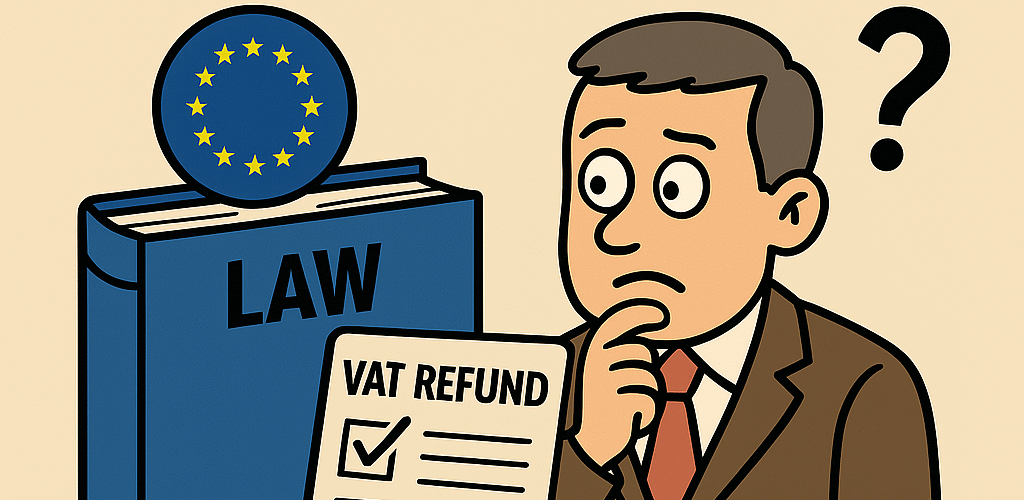- CJEU Ruling on VAT Services: The Court of Justice of the European Union (CJEU) ruled that the activities performed by Határ Diszkont Kft., which include refunding VAT to non-EU buyers, constitute a service for VAT purposes, separate from the sale of goods.
- Administration Fee Classification: Határ charges a 15% administration fee on the refunded VAT, which is categorized as a fee for exempt services. However, the Hungarian tax authorities argued that this service does not qualify for any exemption under EU VAT directives.
- Implications for VAT Treatment: The CJEU determined that neither Article 146(1)(e) nor Article 135(1)(d) of the VAT Directive applies to Határ’s service, and it is contrary to EU law for the Hungarian tax authorities to treat the administration costs as net amounts excluding VAT, especially when the VAT cannot be retrospectively recovered from the exempt purchasers.
Source: taxlive.nl
A management of export documentation for an additional fee to apply VAT exemption on export (and thus to refund VAT to consumers) is a separate supply of services. And thus it is not VAT exempt as an export of goods.
- Facts of the Case: A Hungarian store, Határ Diszkont, sold goods to Serbian residents and provided VAT refunds after verifying related documentation. The tax authority challenged the store’s VAT refund practices, arguing that the services provided for managing VAT refunds should be subject to VAT.
- Questions to the Court: The referring court sought clarification on whether the services for administering VAT refunds should be treated as part of the exempt supply of goods, allowing VAT deductions under the adjusted rules for capital goods, and whether the principle of legitimate expectations protects the taxpayer based on prior tax authority positions.
- Decision and Justification: The CJEU ruled that the VAT refund administration service provided by the store is a separate service not linked to the supply of goods, thus subject to VAT. The court also stated that the principle of legitimate expectations does not apply, as prior tax authority opinions did not constitute precise assurances regarding VAT treatment, requiring the national court to assess the context of the taxpayer’s expectations further.
Source Pawel Mikula
See also
- Briefing document & Podcast: ECJ VAT C-427/23 VAT Refunds for Non-EU Customers: Taxable Services or Exempt? – VATupdate
- ECJ C-427/23 (Határ Diszkont) – Managing VAT refund files is an independent supply subject to VAT, not exempted from VAT – VATupdate
- Roadtrip through ECJ Cases – Taxable transaction, Place of Supply, VAT rate, Exemption, Invoicing – ”Composite supplies”
- Roadtrip through ECJ Cases – Exemption – Financial transactions – deposit and current accounts, payments, transfers, debts, cheques and other negotiable instruments (Art. 135(1)(d))
- Join the Linkedin Group on ECJ/CJEU/General Court VAT Cases, click HERE
- VATupdate.com – Your FREE source of information on ECJ VAT Cases
Latest Posts in "European Union"
- ECJ VAT C-409/24 to C-411/24 – Judgment – Reduced VAT Rate Excludes Non-Accommodation Ancillary Services
- ECJ C-436/24 (Lyko Operations) – Judgment – Loyalty Points in Customer Reward Schemes Are Not VAT Vouchers
- ECJ C-472/24 (Žaidimų valiuta) – Judgment – VAT Exemption Denied for Virtual Money Transactions
- ECG T-96/26 (TellusTax Advisory) – Questions – VAT deductions in the event of different VAT treatment between Member States
- VIDA Measures applicable from 1 January 2027














